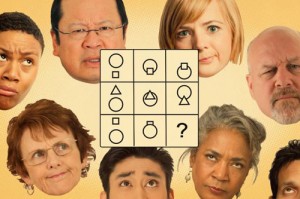When Cognitive Skills Peak--It's Good News!
-
-
slice.mit.edu
Filed Under
Recommended

Fluid intelligence, the ability to think quickly and recall information, was thought to peak around age 20, says coauthor Joshua Hartshorne, a postdoc in MIT’s Department of Brain and Cognitive Sciences. However, being able to tap some three million test subjects online led Hartshorne and coauthor Laura Germine, a MGH postdoc, to make several surprising discoveries—including that fluid intelligence may peak as late as the 40s. The data also showed that crystallized intelligence, the accumulation of facts and knowledge, may peak in the 60s or the early 70s.
Having a larger pool of subjects produced better data.

“Most of what we know about the human mind comes from studying children under five years old, college students, and retirees ... because those are the people who have time to take out of their day to come into the laboratory,” says Harthorne. “This really limits how much of the human experience we understand. Even worse, for the most part, we are mostly able to study people who are part of a university community—again, because those are the people who are nearby the laboratory.”
“By switching to using the Internet, we can get a much more diverse population, and so we are in a better position to understand what generalizes and what does not. Otherwise, we are in the dangerous situation of trying to extrapolate from MIT undergraduates to the entire human race.”
All that data also allowed them to use a statistical technique called bootstrapping.
“The basic problem is in our actual data, it may be that people who are 33 years old did the best. But that could be due to random chance. How do you know that the people who are 33-years-old really are doing reliably better than people at other ages? What you'd like to do is run the experiment many times and see if you usually find the 33-year-olds doing the best. In bootstrapping, you use the data you collected to simulate those additional experiments.”
What are some other intelligence timestamps?
- Raw speed in processing information appears to peak around age 18 or 19.
- Short-term memory improves until around age 25, holds steady for a decade, then begins to drop off.
- The ability to evaluate the emotional states of other people peaks in the 40s or 50s.
You can compare your responses in a series of quick games and quizzes to others of your age and education range on these research web sites: gameswithwords.org and testmybrain.org.
Read the MIT News article, the "Rise and Fall of Cognitive Skills," to learn more. Or check out Hartshorne’s other writing on topics on such as brain games and the role of citizen scientists.







